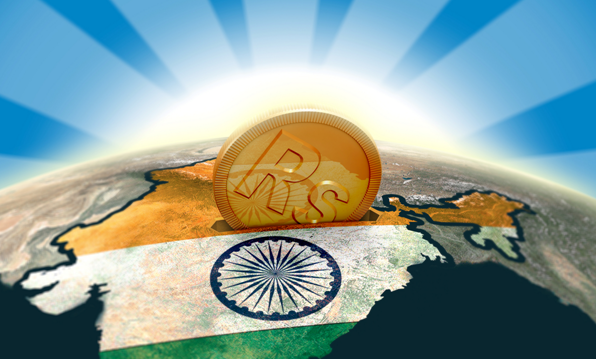Monsoon Season: India’s Real Finance Minister?
By Nishant Dixit
Posted: 3rd June 2015 09:17
President Pranab Mukherjee once remarked that monsoon season was India’s true finance minister. Foreign observers may find the statement odd, but expatriates with experience doing business in India will sympathize with Mukherjee’s sentiments.India’s monsoon season normally arrives to Kerala state in June, and slowly spreads north to encompass the whole country by late July. This year, the India Meteorological Department forecast that the monsoon would arrive in Kerala on time, but that the monsoon will bring below average rainfall.
The forecast caused food and stock prices to fluctuate. However, a below average monsoon has a wider impact on business as usual in India.
How Does Monsoon Season Affect the Indian Economy?
In India, monsoon season is an economic event. The agriculture sector accounts for 14 percent of the country’s gross domestic product (GDP), while approximately half of India’s total workforce is engaged in the sector. Seasonal rains are crucial to agricultural productivity and rural income: monsoon rains provide more than 70 percent of India’s total annual rainfall, while about 54 percent of total farmland is irrigated by these rains.
In years of above average rainfall, agricultural production often increases and lifts rural income. Poor monsoon rains, on the other hand, produce a cascading effect of lower agricultural productivity, food inflation and lower consumer spending.
From boardrooms in Delhi, Mumbai and Bangalore it may be easy to overlook the plight of farmers toiling in sugarcane fields or rice paddies, but the rural market is increasingly a growth area for manufacturers and retailers. For example, rural India accounts for over half of all motorbike sales and a quarter of all car sales in the country. A bad monsoon is simply bad for business.
What Sectors and Industries Are Most Affected?
Agriculture, power generation and construction are directly affected by the monsoon. India is one of the largest exporters and importers of basic agricultural commodities in the world. The level and distribution of monsoon precipitation across India can therefore cause dramatic fluctuations in the price of basic commodities in the country. These price fluctuations affect consumer spending; businesses that cater to rural markets often experience lower demand for their products, while this spending behavior can also spread to urban markets.
The rains also have an effect on power generation in major Indian states. A below average monsoon rainfall often translates to an increase in the number of blackouts. In states like Punjab and Kerala, for example, weak monsoons have directly caused an increase in the number and length of power outages in recent years. Aside from disrupting business as usual, power shortages can affect productivity and operational costs for power-hungry industries.
Above average monsoons, meanwhile, affect industries such as construction and transport. Periods of ample rain lead to more demand for cement and other construction materials, increasing the cost of doing business. Heavy rains can also limit the number of projects firms can service and extend the amount of time they take to complete. Heavy rainfall has a similar impact on transportation; transport operators are often unable to provide normal services during bouts of heavy rain.
Is the Effect of Monsoon Season Declining?
The effect of monsoons on the economy is steadily declining relative to other factors such as supply chain inefficiencies. In agriculture, for example, India’s food supply chain remains impacted by inadequate infrastructure and speculative intermediaries that can cause inflation during even normal monsoon seasons. Better irrigation coverage is also making agriculture less dependent on rainfall.
However, this does not mean that the impact of monsoon season will disappear completely. As the Indian economy continues to move away from agriculture towards services and manufacturing, the economic effect of monsoons will increasingly be felt on logistics and infrastructure.
This article was first published on India Briefing.
Since its establishment in 1992, Dezan Shira & Associates has been guiding foreign clients through Asia’s complex regulatory environment and assisting them with all aspects of legal, accounting, tax, internal control, HR, payroll and audit matters. As a full-service consultancy with operational offices across China, Hong Kong, India and emerging ASEAN, we are your reliable partner for business expansion in this region and beyond.
For inquiries, please email us at info@dezshira.com. Further information about our firm can be found at: www.dezshira.com.




Comments